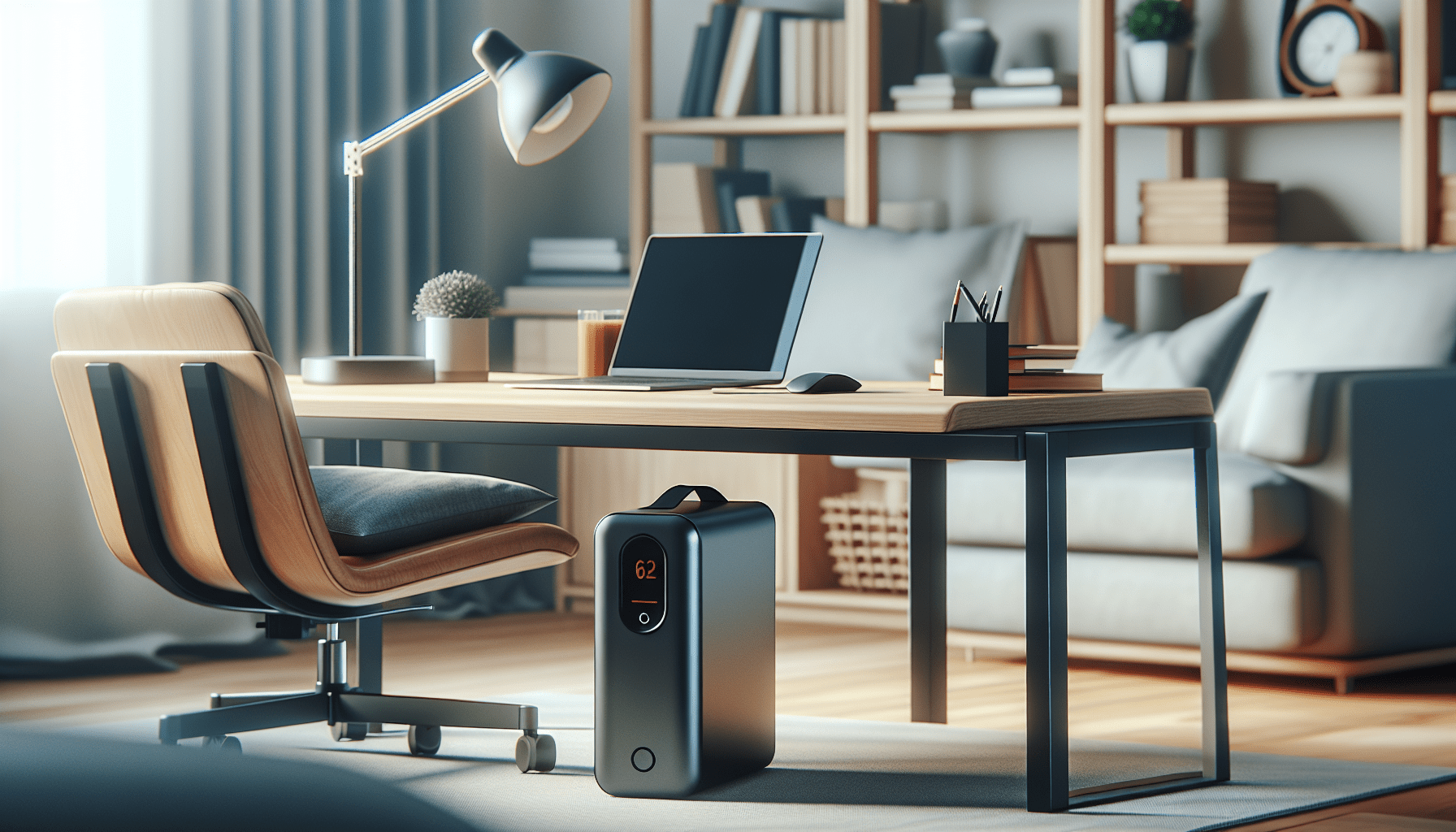Imagine this: you’re in the middle of a crucial video call with your team, and suddenly the power goes out. Frustrating, right? This article dives into how a home power backup can save the day, ensuring that you can continue working seamlessly from home even when your neighborhood is plunged into darkness. From keeping your Wi-Fi running to powering your computer, we’ll explore the benefits that make a home power backup an essential investment for any remote worker.
Can A Home Power Backup Help Me Work From Home During A Power Outage?
Have you ever wondered, “Can a home power backup help me work from home during a power outage?” It’s a question that’s top of mind, especially in a world where more of us are telecommuting. Power outages can be a serious disruption, but they don’t have to bring your productivity to a halt. Let’s dive into how home power backups can keep you connected and working seamlessly, even when the grid goes dark.

Understanding Home Power Backups: What Are They?
Before discussing how a power backup can help you during an outage, it’s essential to understand what home power backups are. Essentially, backup power systems provide an alternative source of electricity when your primary source fails. These systems can be a life-saver when you need to keep working during an electrical disruption.
Types of Home Power Backups
There are various options available when it comes to home power backups. Each type has its pros and cons, so knowing them will help you make an informed decision.
| Type | Description | Pros | Cons |
|---|---|---|---|
| Uninterruptible Power Supply (UPS) | Provides instant power from battery backup and is designed for short-term outages. | Immediate power source, portable, cost-effective for short-term use. | Limited power supply, short duration. |
| Generators | Can be powered by gas, diesel, or propane and are designed for longer outages. | Long-lasting power, can support large homes, and several appliances. | Requires fuel, can be noisy, needs regular maintenance. |
| Battery Backups with Solar Integration | Uses stored solar energy to provide backup power. | Renewable, eco-friendly, and can be cost-saving in the long run. | Initial setup can be expensive, depends on sunlight. |
Benefits of Having a Home Power Backup
Continuous Work Flow
One of the significant benefits of having a home power backup is an uninterrupted workflow. Imagine you’re in the middle of a crucial video conference, and suddenly your screen goes black. With a reliable power backup, situations like these are avoidable.
Protecting Your Data
Data loss is another serious concern during power outages. Unsaved work can vanish in seconds when the power goes out. A power backup ensures you have enough time to save your work or even continue without interruption.
Maintaining Communication
In today’s world, staying connected is crucial. Whether it’s answering emails, making calls, or attending virtual meetings, a power backup ensures your communication channels remain open.
Comfort and Convenience
A power backup can also keep other essential devices running like your internet router, lighting, and even climate control systems like your AC or heater. This adds a layer of comfort, making working from home much more manageable during an outage.
Factors to Consider When Choosing a Home Power Backup System
Choosing the best power backup system for your needs can seem overwhelming, but considering the following factors can help narrow down your options.
Power Requirements
First, determine the power requirements of your home office setup. This includes your computer, monitor, internet router, phone charger, and any other devices you use regularly. Here’s a simple table to estimate your power needs:
| Device | Average Power Consumption (Watts) |
|---|---|
| Laptop/Computer | 50-150 |
| Monitor | 15-70 |
| Internet Router | 10-15 |
| Phone Charger | 5-10 |
| Desk Lamp | 5-20 |
| Printer/Scanner | 10-50 |
Add up the watts to figure out your total power requirement. This will help you select a backup system that can handle the load.
Duration of Backup Needed
Consider how long you typically need backup power. If your area experiences frequent but short outages, a UPS might be enough. For extended outages, a generator or a solar battery backup might be more appropriate.
Budget
Your budget plays a crucial role in deciding which power backup system to choose. UPS units are generally inexpensive, while generators and solar systems can be more costly but offer long-term benefits.
Space and Installation
Space and installation ease are also important factors. Generators can take up significant space and may require professional installation, while UPS units are compact and easy to set up.
Noise Level
Generators can be noisy, which might be disruptive when working from home. If noise is a concern, consider quieter options like battery backups.
Setting Up Your Power Backup System
Once you’ve chosen the right power backup system, it’s time to set it up. Here’s a step-by-step guide:
Step 1: Determine Placement
Choose a suitable location for your power backup system. For a UPS, this could be as simple as placing it under your desk. Generators, on the other hand, should be placed outside or in well-ventilated areas.
Step 2: Connect Devices
For UPS and battery backups, plug your essential devices directly into the backup unit. Ensure that all connections are secure. For generators, you may need an electrician to set up transfer switches and essential circuits.
Step 3: Test the System
Run a test to ensure everything works as expected. Turn off your main power supply and see how your backup system performs. This will give you peace of mind that your setup is ready for an actual outage.
Step 4: Maintenance Checks
Regular maintenance is essential for generators and sometimes for UPS systems, especially if they come with replaceable batteries. Ensure the system is in good working condition to avoid any surprises.

Real-World Scenarios: When and How a Home Power Backup Can Save the Day
Short Outages
Say you’re in the middle of preparing a presentation. The power goes out suddenly, but your UPS kicks in instantly. You continue working without any disruption. Crisis averted!
Extended Outages
Now imagine there’s a severe storm, and the power might be out for days. A generator can power your entire home, allowing you to work, cook, and maintain comfort along with essential functions.
Remote Meetings
You’re hosting a virtual meeting with team members across different time zones. Right before the meeting, the power goes out. Your battery backup with solar integration provides seamless power, and the meeting goes on without a hitch.
Data Security
You’re working on a crucial document and haven’t saved it yet. A sudden power failure occurs. Thanks to your UPS, you have time to save your work, preventing data loss and maintaining your peace of mind.
Environmental Considerations and Sustainability
Solar Solutions
For those who are environmentally conscious, solar power backups offer a sustainable option. Solar panels harness the sun’s energy to charge your batteries, ensuring a renewable power source. Here are some advantages and disadvantages of solar solutions:
| Advantages | Disadvantages |
|---|---|
| Renewable energy | Initial high cost |
| Low operational cost | Weather-dependent |
| Reduced carbon footprint | Requires sufficient space |
Eco-Friendly Generators
Some new generator models are designed to be more eco-friendly, using propane instead of gasoline, which burns cleaner. This can be a good middle-ground if solar isn’t feasible for you.
Reducing Energy Consumption
Regardless of your power backup choice, reducing energy consumption in your home office can extend the effectiveness of your backup system. Simple steps like using LED bulbs, turning off unused devices, and optimizing power settings on your computer can make a big difference.

Common Myths About Home Power Backups
“Generators Are Too Loud”
While traditional generators can be noisy, many modern models are designed to operate more quietly. Inverter generators, for example, are known for their reduced noise levels.
“UPS Systems Can’t Handle High Loads”
While it’s true that UPS systems have limited capacity, high-capacity models are available that can handle larger loads. It’s essential to choose one that matches your requirements.
“Solar Power Backups Are Unreliable”
Solar technology has come a long way. Today’s solar batteries are highly reliable and can offer consistent power as long as they are correctly sized and maintained.
Frequently Asked Questions (FAQs)
What is the lifespan of a home power backup system?
The lifespan varies depending on the type. UPS systems typically last 3-5 years, while generators can last 10-15 years with proper maintenance. Solar power systems can also last up to 25 years but may require battery replacements.
Can I run my entire house on a backup system?
It depends on the system’s capacity. Generators can power entire homes, while UPS systems and some battery backups are generally designed for essential devices and specific circuits.
Is it safe to install a power backup system myself?
While installing a UPS is straightforward and usually safe, installing generators and solar backups may require professional assistance to ensure safety and compliance with regulations.
How much does it cost to install a home power backup system?
Costs vary widely. A basic UPS can start as low as $50-$100, while generators can range from $500 to several thousand dollars depending on capacity. Solar power systems are generally more expensive, with costs running into several thousand dollars for a comprehensive setup.

Conclusion: Is A Home Power Backup Worth It?
So, can a home power backup help you work from home during a power outage? Absolutely! By providing continuous power, protecting your data, and maintaining communication, a reliable power backup system can be a lifesaver in an outage. Considering your power needs, budget, and the various types of backup systems available, you can choose the one that best suits your requirements.
Investing in a home power backup system ensures that unexpected power outages don’t disrupt your workday, allowing you to stay productive, comfortable, and connected. With this peace of mind, you can confidently tackle your to-do list, no matter what Mother Nature throws your way.

